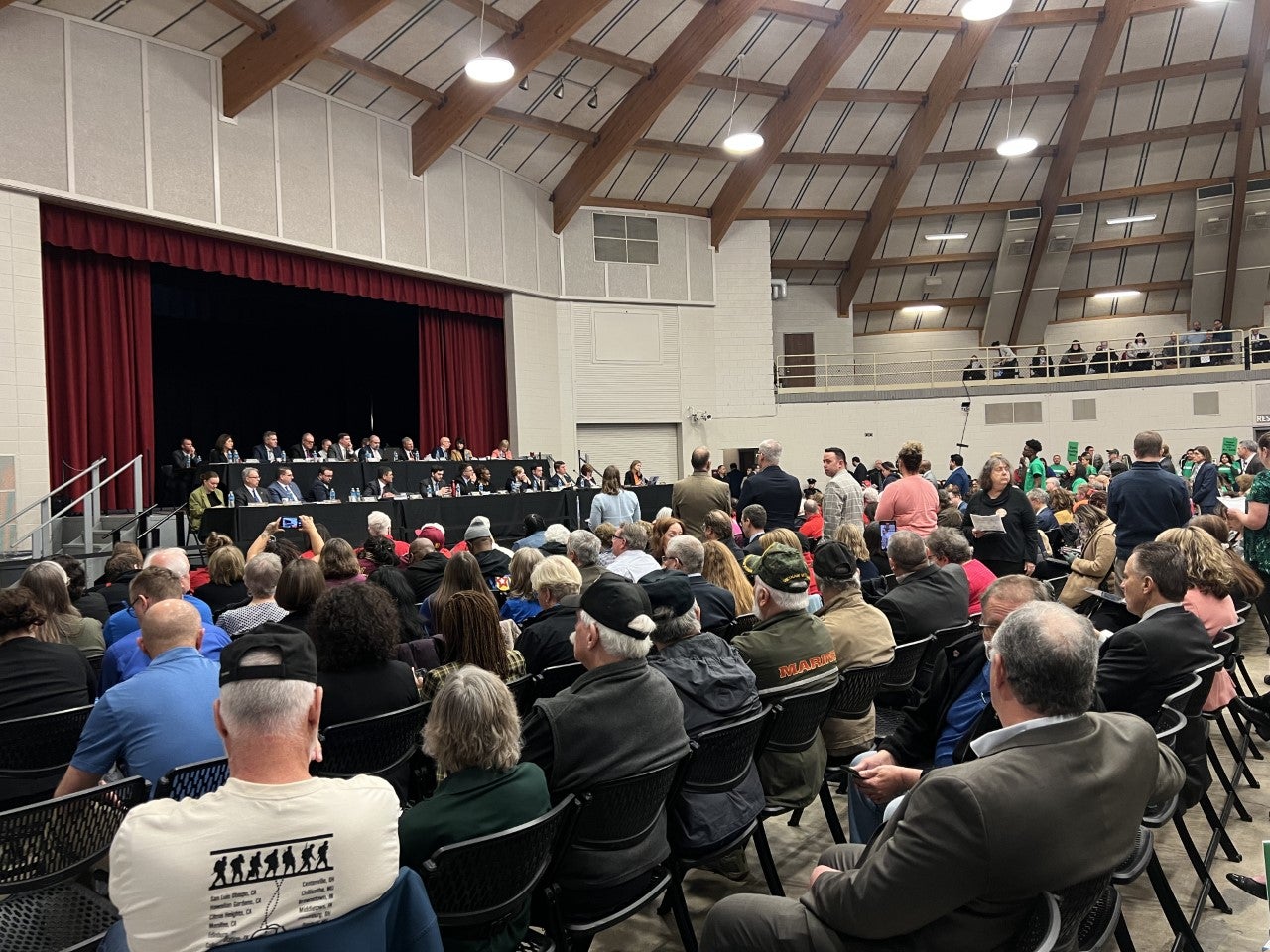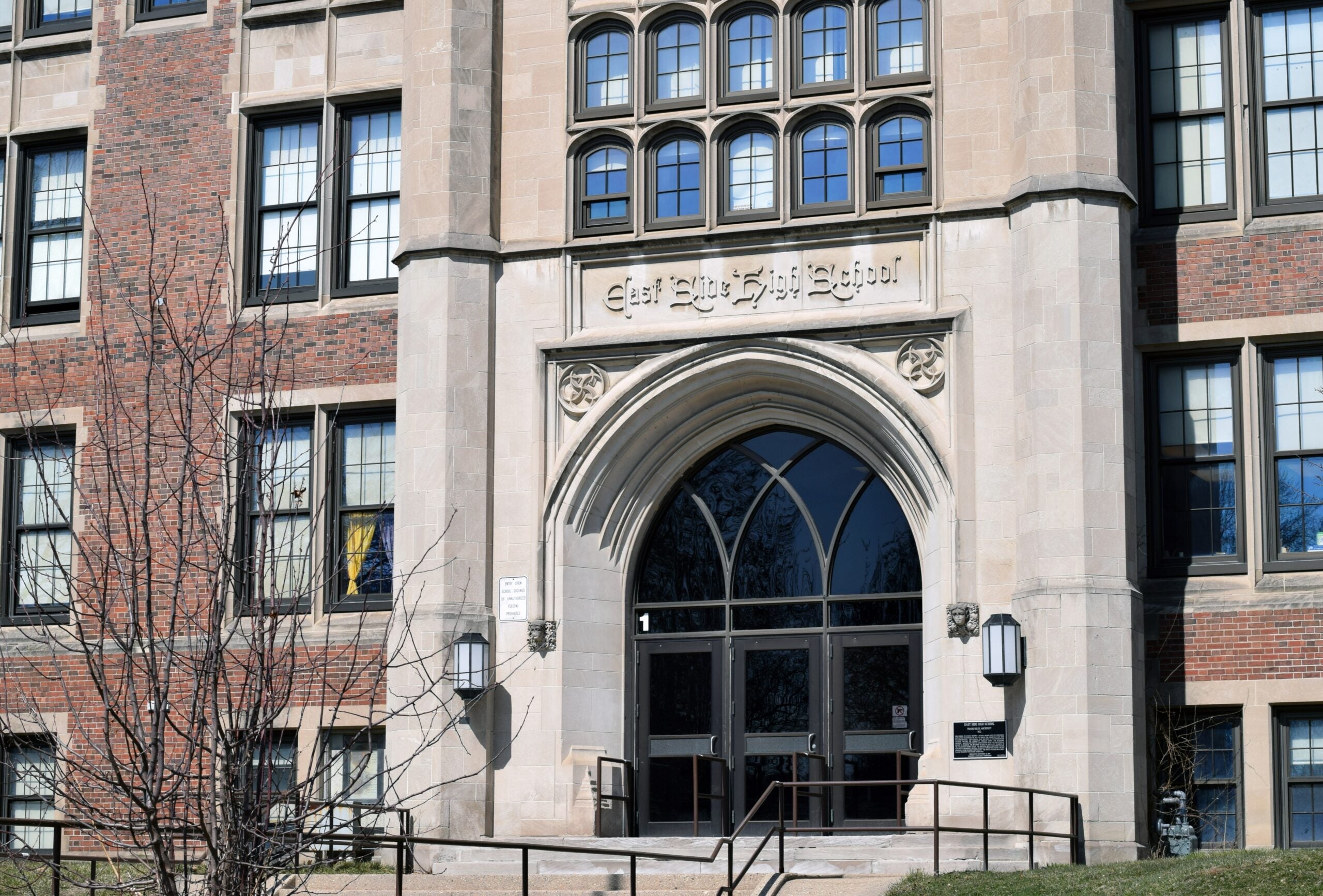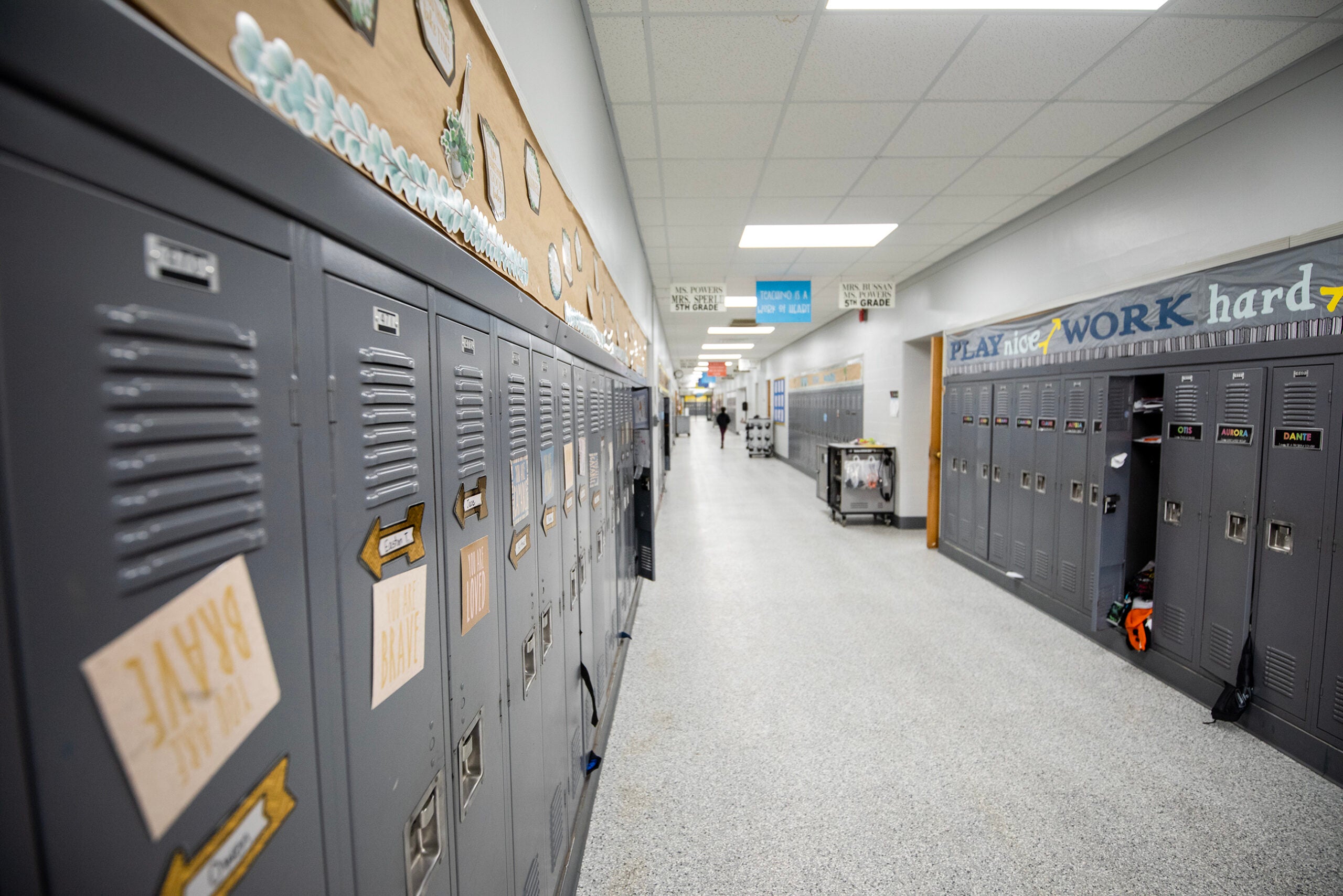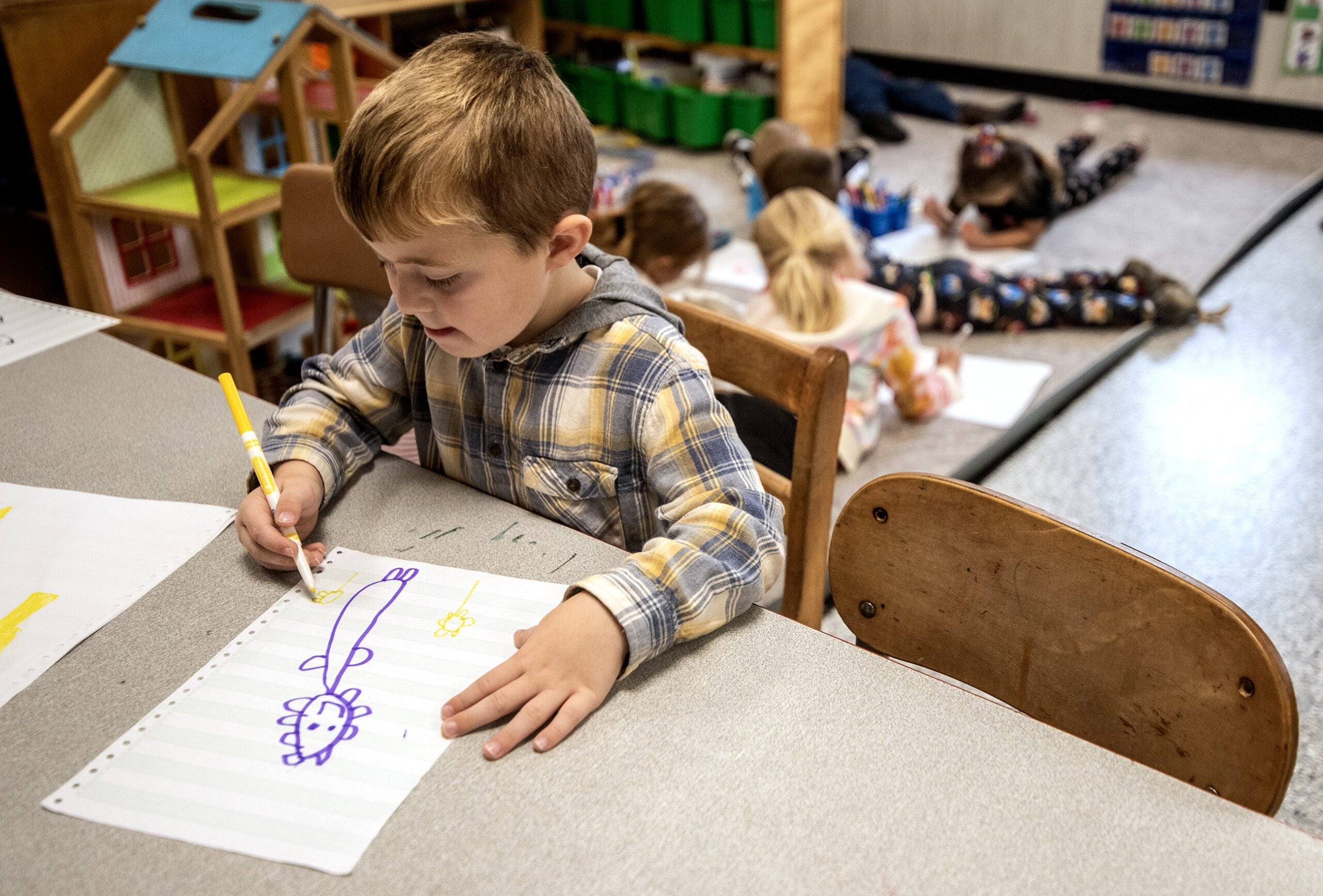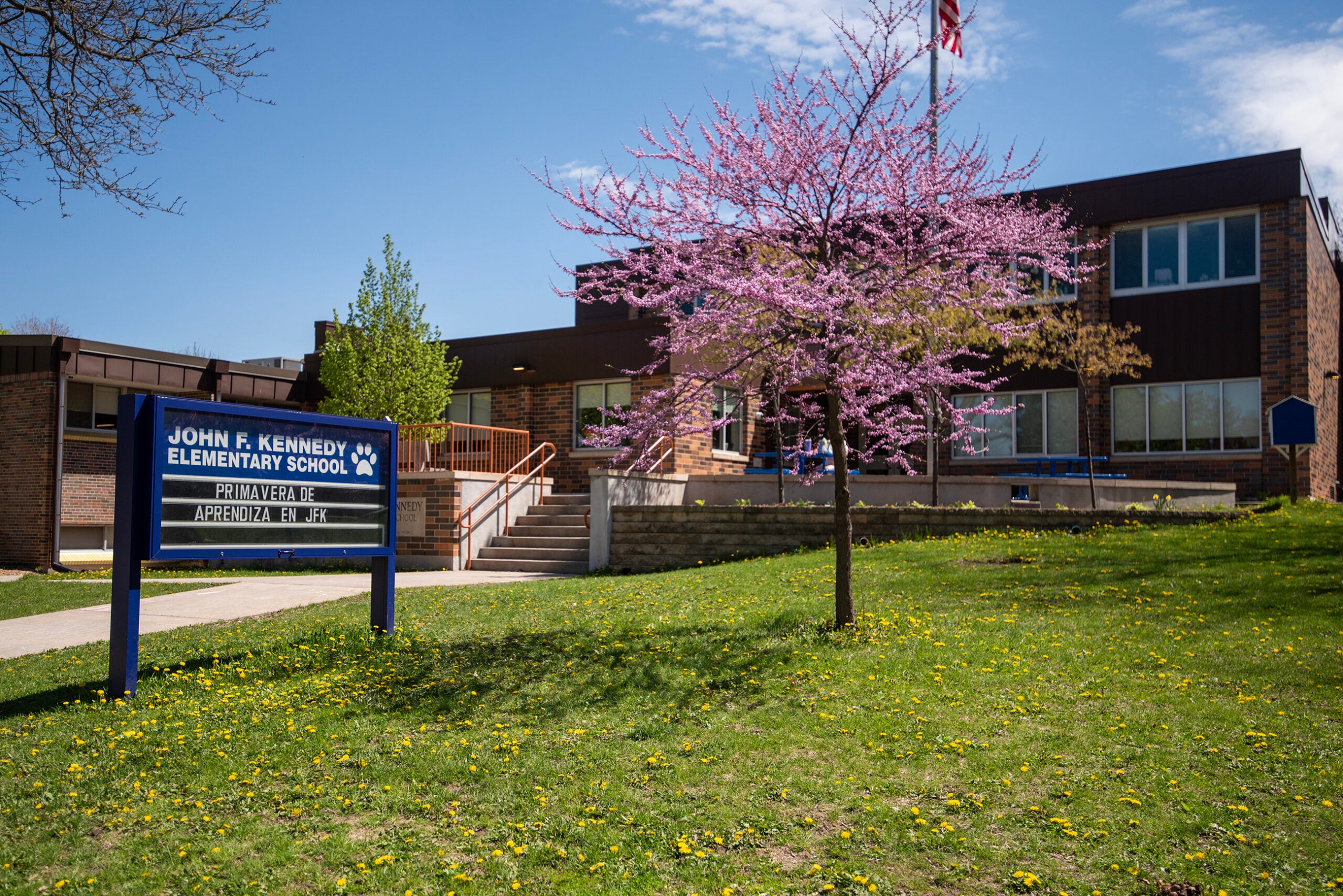Dozens of educators called on Wisconsin’s powerful budget committee Wednesday to ensure funding for public education remains a top priority as the GOP-controlled state Legislature works on writing its own version of Gov. Tony Evers’ budget proposal.
One by one, attendees at the Joint Finance Committee’s first public listening session took to the microphone at the Waukesha County Expo Center to voice their concerns. Many called on the committee to protect funding for education in the 2023-25 biennial budget. Others at the listening session discussed the need to update the state’s shared revenue system.
Evers proposed dedicating 20 percent of the state’s sales tax revenue to municipalities — and while Republicans haven’t endorsed a specific number, they’ve said there’s a need to boost local government funding.
News with a little more humanity
WPR’s “Wisconsin Today” newsletter keeps you connected to the state you love without feeling overwhelmed. No paywall. No agenda. No corporate filter.
As for education, Evers’ budget proposal sets aside $2.6 billion in funding for schools. It also calls for a $270 million investment in student mental health through a combination of state and federal funding. The governor is asking over $1 billion on special education, and the budget proposal would raise the amount districts can collect from local taxpayers by $350 per pupil in the first year of the budget and $650 per pupil in the second year.
When Evers unveiled his budget proposal in February, Assembly Speaker Robin Vos, R-Rochester, said it was “absolutely devoid of reality.” It remains to be seen how much of his proposal will make its way into the Legislature’s version.
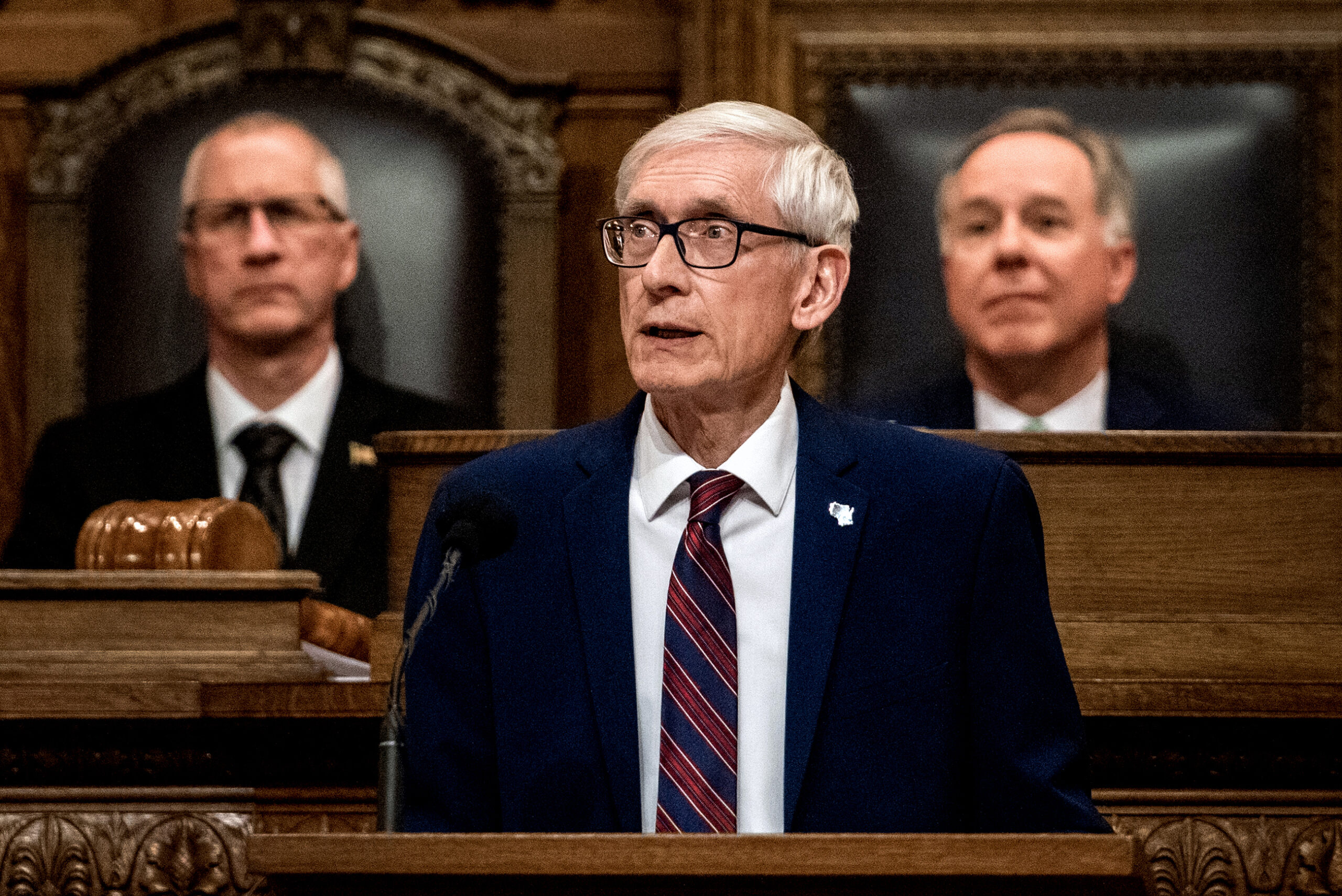
Still, some local educators and groups, including the Southeast Wisconsin Schools Alliance, asked lawmakers to increase that number. The Schools Alliance wants the committee to increase spending to $1,510 per pupil in the next two years, while increasing the special education funding reimbursement from 60 percent in Evers’ proposal to 90 percent.
Lisa Elliott, superintendent of the Greenfield School District, said at the end of this school year, the district will have spent all of its federal pandemic relief funds.
“Since there’s been no increase to the revenue limit, or per-pupil spending, we’ve had to use those … dollars to backfill our budget, which has created significant operation budget gaps,” Elliott said.
Mike Spragg, president of the Franklin Board of Education, said many districts across the state have been forced to use pandemic relief to fill budget gaps because of the lack of state funding.
“The decision not to properly fund schools will ultimately impact the educational quality of our state’s children,” Spragg said during the hearing.
Public school districts are also relying heavily on local taxpayers. Last year, districts around Wisconsin asked voters for an additional $1.9 billion in spending authority through at least 70 referendum questions from 50 districts. A 2020 analysis by the nonpartisan Wisconsin Policy Forum found voters have been increasingly willing to support school referendums.
Jonathan Mitchell, the director of business services at the Greendale School District, said if the state doesn’t increase public education funding, they could be forced to cut teaching positions, eliminate athletic and music programs and stop updating its school buildings.
“We believe these cuts would erode services to our students, our community and our state,” Mitchell said.
Mitchell also called on the committee to increase per-pupil spending and spending for special education: “Investment in K-12 public education in the 23-25 biennial budget must be at a level to support the academic needs of our students.”
Calls for increased shared revenue
Others who spoke at the hearing asked the Joint Finance Committee to prioritize increasing shared revenue for local municipalities. Joe Pulvermacher, fire chief for the city of Fitchburg, was one of those people.
Shared revenue is the largest state aid program for local municipalities and many face impending budget and service cuts due to revenue caps and decreasing state aid.
Pulvermacher said Fitchburg has seen an increase in calls as well as a decrease in staff. He said the lack of shared revenue from the state is partly to blame.
“Those reductions have impacted readiness and response,” Pulvermacher said. “If you live in the rural areas, sometimes you’re lucky to have a response. It’s that critical at this point.”
Milwaukee Common Council President Jose Perez also spoke about the need to update the shared revenue program.
“We need additional revenue, whether it’s in the form of sales tax, or increase shared revenue, I’m asking you today to please, let’s continue this, let’s strengthen this relationship,” he said.
The committee will hold three more public hearings across the state in the coming weeks, including:
- April 11 at 10 a.m. in Eau Claire at the University of Wisconsin-Eau Claire Davies Student Center.
- April 12 at 10 a.m. in Wisconsin Dells at the Wilderness Resort Glacier Canyon Conference Center.
- April 26 at 10 a.m. in Minocqua at Lakeland Union High School.
Wisconsin Public Radio, © Copyright 2026, Board of Regents of the University of Wisconsin System and Wisconsin Educational Communications Board.
